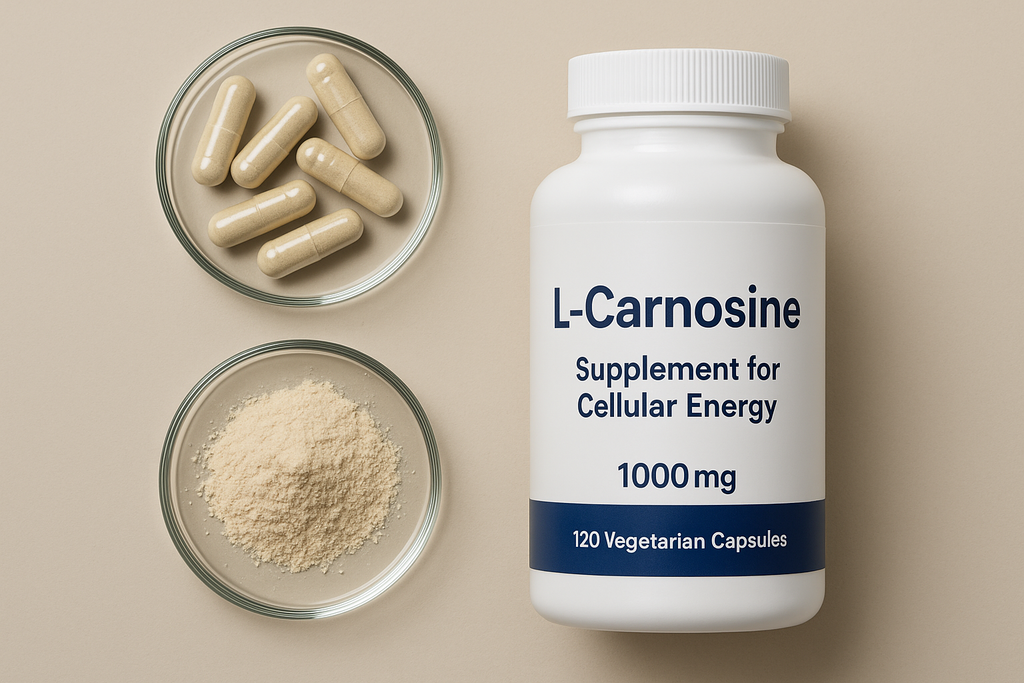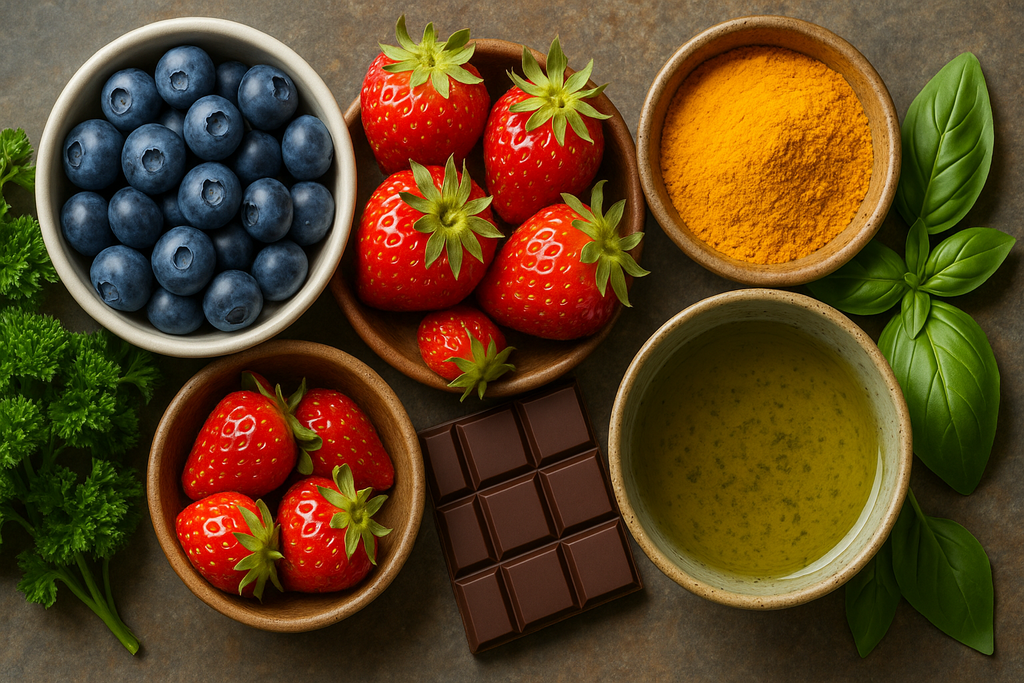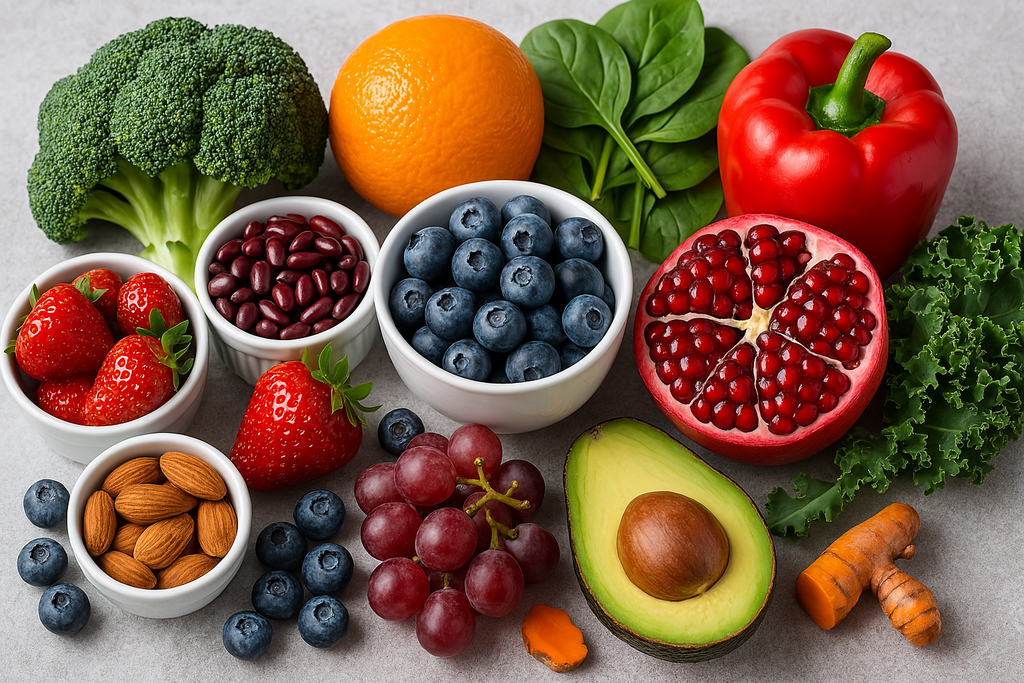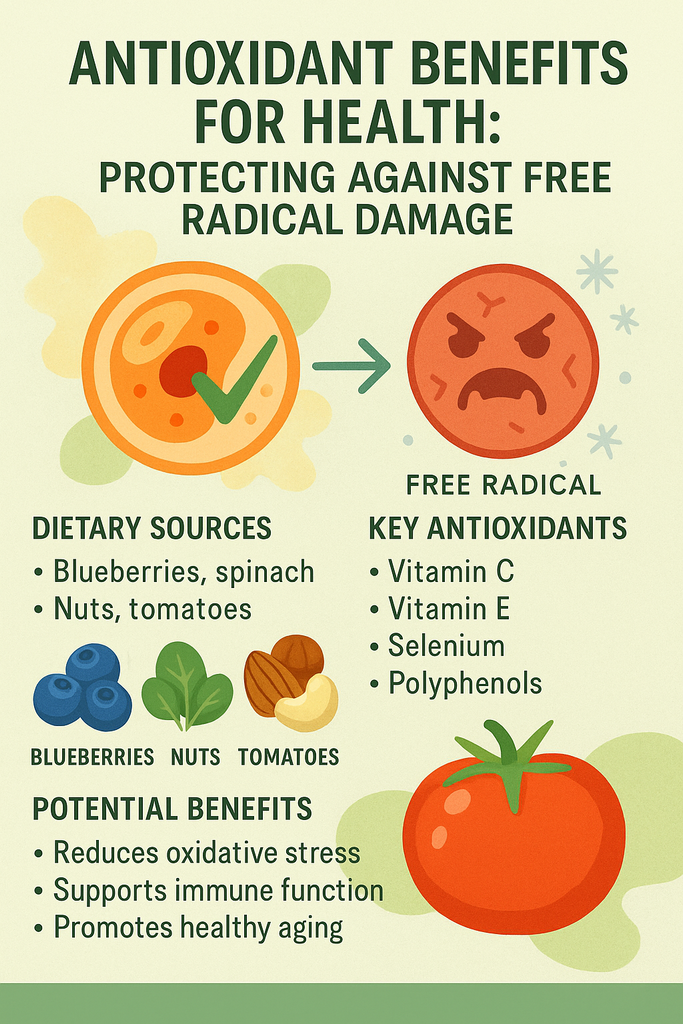News — antioxidant supplements
L-Carnosine Side Effects and What You Need to Know
amino acid supplements anti-aging supplements antioxidant supplements beta-alanine histidine cellular energy support cognitive enhancers energy supplements glycation prevention L-Carnosine L-Carnosine and medication L-Carnosine benefits L-Carnosine dosage L-Carnosine for brain health L-Carnosine safety L-Carnosine side effects longevity supplements mitochondrial health muscle fatigue supplements post-workout recovery supplement risks
L-Carnosine has gained traction in recent years for its anti-aging potential, cellular protection, and brain-boosting effects. Naturally found in the brain, muscles, and heart, this dipeptide compound—made of beta-alanine and histidine—has become a go-to supplement for biohackers, athletes, and those focused on healthy aging. But while its benefits are promising, what about the potential side effects?
Before adding any new supplement to your regimen, it’s crucial to weigh both its advantages and risks. In this guide, we’ll break down the science behind L-Carnosine, explore reported side effects, examine who should avoid it, and highlight how to use it safely. If you're considering trying a high-quality product like L-Carnosine – Supplement for Cellular Energy, this article will help you make an informed decision.
What is ORAC Score? Meaning, Health Benefits, and Real-World Relevance
antioxidant benefits antioxidant capacity antioxidant foods antioxidant supplements food synergy free radicals high ORAC foods ORAC and health ORAC controversy ORAC diet ORAC meaning ORAC measurement ORAC scale ORAC score ORAC score list ORAC value oxygen radical absorbance capacity superfoods ORAC USDA ORAC what is ORAC
When it comes to superfoods, antioxidant claims, and boosting longevity, one term often pops up: ORAC score. You’ve likely seen it on supplement labels, wellness blogs, or food packaging—sometimes accompanied by big promises of cellular protection and disease prevention. But what does the ORAC score really mean, and how much should it factor into your health decisions?
ORAC, short for Oxygen Radical Absorbance Capacity, is a method of measuring the antioxidant capacity of foods and supplements. Since antioxidants help combat free radicals—a major contributor to aging and chronic disease—understanding the ORAC score can be a valuable tool in choosing what to eat. In this guide, we’ll explore what the ORAC score truly measures, how it's calculated, and whether it holds up as a reliable marker for better health.
The Best Antioxidant-Rich Foods for Skin and Overall Health
anti-aging foods anti-inflammatory foods antioxidant supplements antioxidant-rich foods antioxidants best antioxidants for skin collagen boost free radicals fruits for skin glowing skin diet green tea benefits healthy eating healthy lifestyle natural skincare omega-3s polyphenols skin health vegetables for skin vitamin C vitamin E
Antioxidants are nature’s secret weapon in the fight against aging, inflammation, and chronic disease. These powerful compounds help neutralize free radicals—unstable molecules that can damage your cells and accelerate skin aging, weaken your immune system, and contribute to numerous health issues. Incorporating antioxidant-rich foods into your diet is a proactive way to support both radiant skin and robust overall health.
In today’s fast-paced world, stress, pollution, and processed foods can deplete our body’s natural defenses. That’s where antioxidants step in. From vibrant berries to dark leafy greens and even indulgent dark chocolate, nature offers a colorful palette of delicious options packed with protective nutrients. This article will explore the top antioxidant-rich foods that promote glowing skin, boost immunity, and enhance longevity—making it easier than ever to nourish your body from the inside out.
Antioxidant Benefits for Health: Protecting Against Free Radical Damage
anti-aging nutrition antioxidant benefits antioxidant rich foods antioxidant supplements antioxidants and aging antioxidants and chronic disease best antioxidants CoQ10 benefits dietary antioxidants free radical damage glutathione master antioxidant how antioxidants work immune system support lipoic acid antioxidant oxidative stress oxidative stress prevention polyphenols and health selenium for health vitamin C skin health vitamin E protection
Every day, your body faces an invisible battle. Free radicals—unstable molecules produced by normal metabolism, pollution, stress, and even sunlight—threaten your cells with oxidative damage. Left unchecked, these rogue molecules contribute to aging, inflammation, and chronic diseases like cancer, diabetes, and heart disease.
Thankfully, nature has provided a powerful defense system: antioxidants. These protective compounds neutralize free radicals, shielding your body from harm. From vibrant fruits and vegetables to targeted supplements, antioxidants offer one of the most effective ways to support cellular health, longevity, and vitality. This guide explores the science behind antioxidants and how to harness their full health benefits.
Natural vs. Synthetic Vitamins and Antioxidants: Absorption and Effectiveness
antioxidant absorption antioxidant supplements bioavailable vitamins collagen support food-based vitamins LongLifeNutri natural antioxidants natural vitamins natural vs synthetic nutrients nutrient synergy supplement label tips synthetic antioxidant risks synthetic vitamins vitamin bioavailability vitamin C comparison vitamin E comparison vitamin effectiveness vitamin toxicity whole food supplements
Vitamins and antioxidants are vital to maintaining energy levels, immune health, cognitive performance, and youthful skin. But with store shelves lined with both natural and synthetic options, the question often arises: which type is more effective? While the goal of both forms is to support health and prevent nutrient deficiencies, their origins, bioavailability, and long-term impact can vary greatly.
The debate between natural and synthetic vitamins and antioxidants isn't just a marketing ploy — it's rooted in scientific differences that can affect absorption, efficacy, and overall benefit to the body. Consumers are increasingly looking beyond the label to understand what they're putting into their bodies and how it interacts with their biology. This article breaks down the key distinctions, the science behind nutrient absorption, and how to make the best choice for your health.





